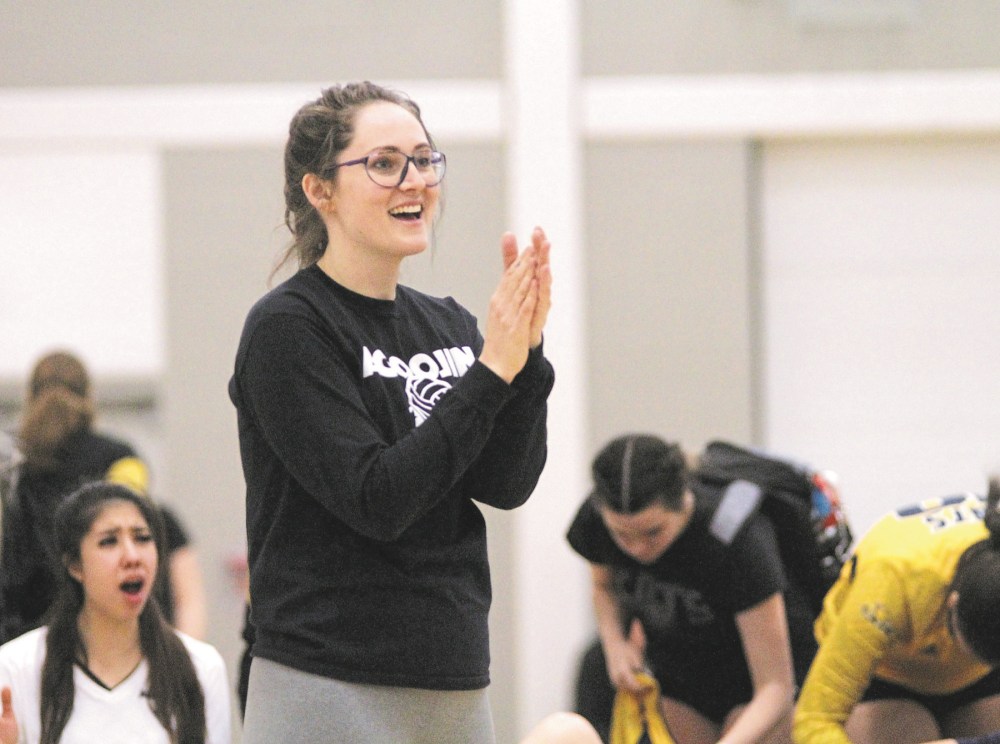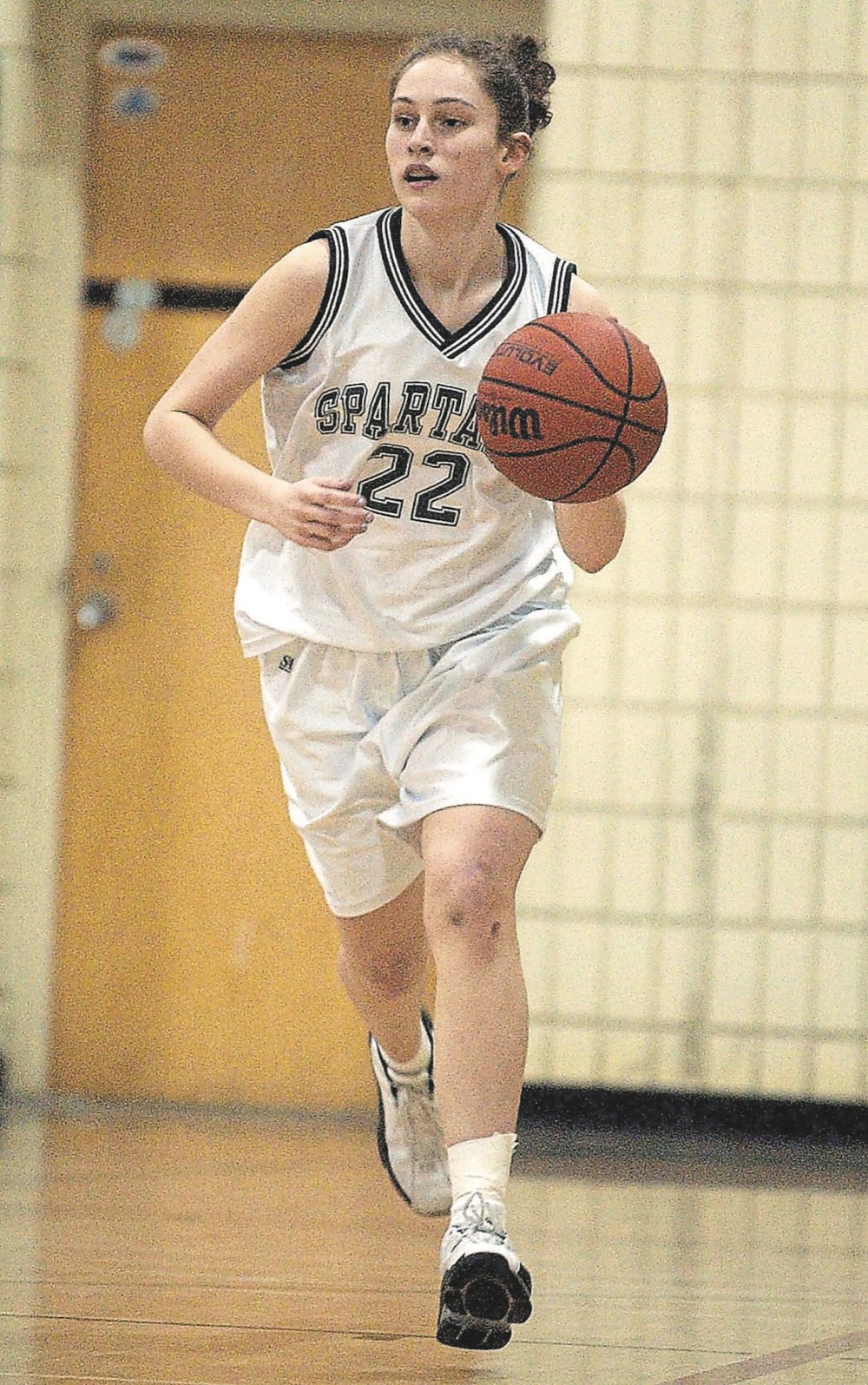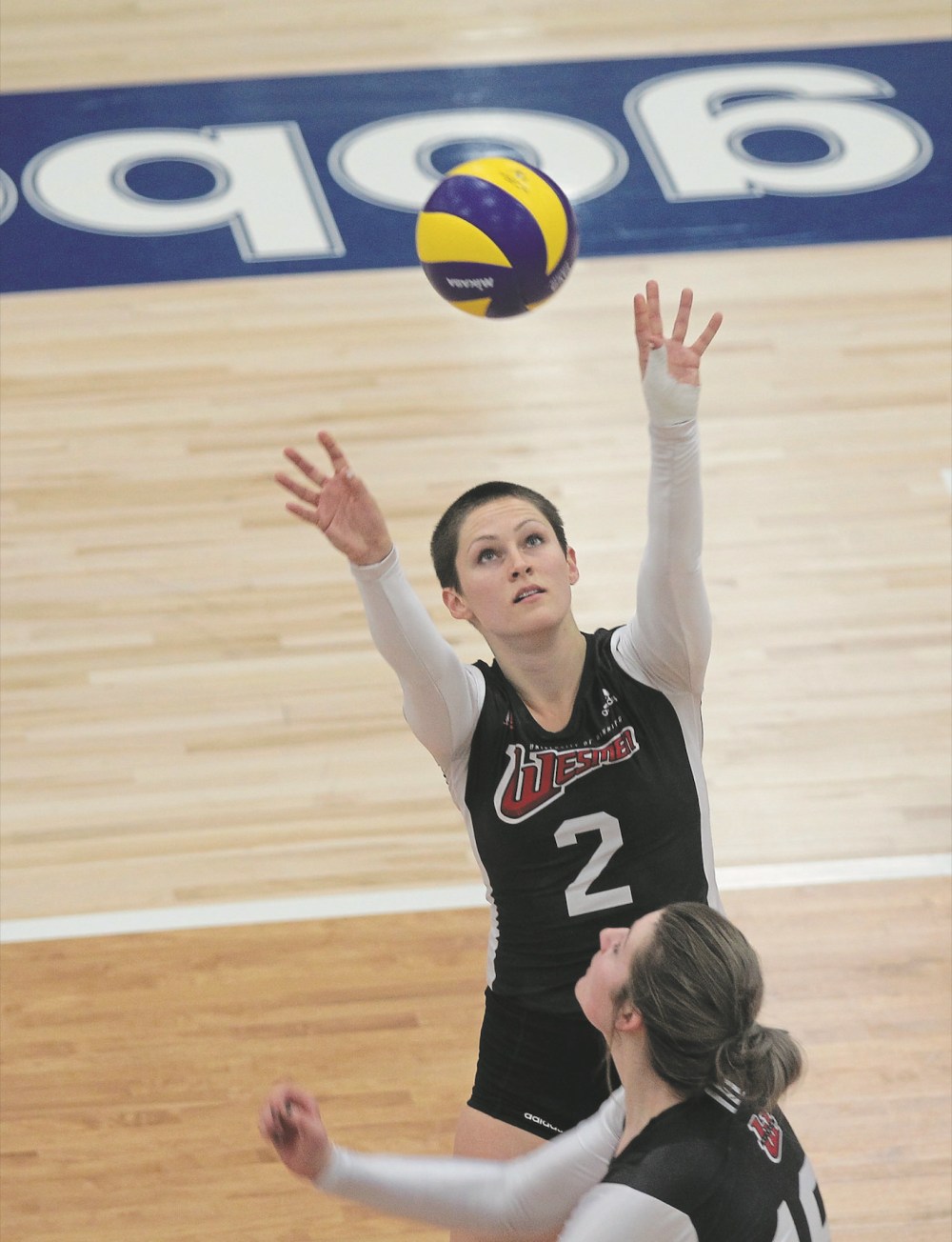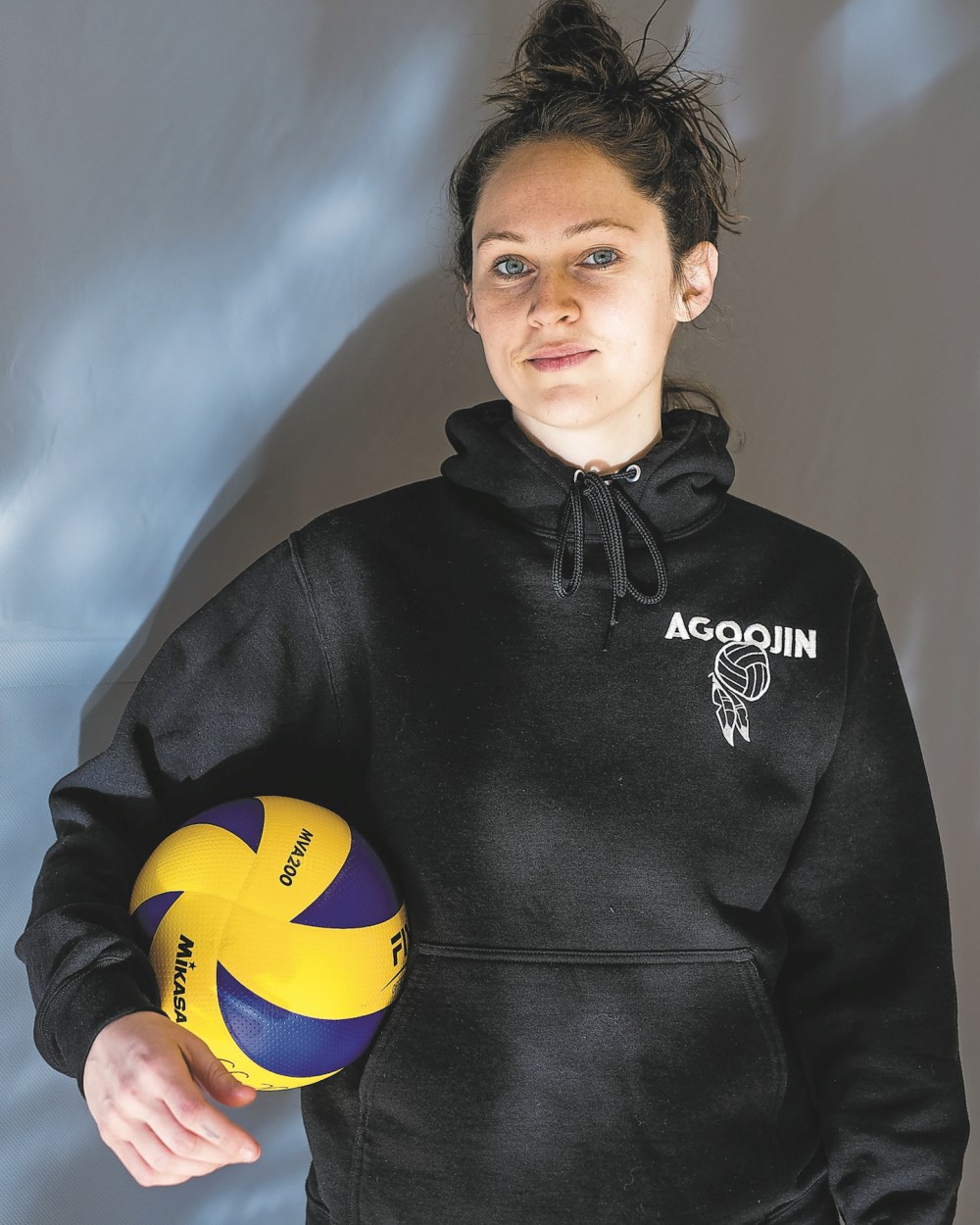Menzies ‘loud and proud’ of Métis roots
Advertisement
Read this article for free:
or
Already have an account? Log in here »
We need your support!
Local journalism needs your support!
As we navigate through unprecedented times, our journalists are working harder than ever to bring you the latest local updates to keep you safe and informed.
Now, more than ever, we need your support.
Starting at $15.99 plus taxes every four weeks you can access your Brandon Sun online and full access to all content as it appears on our website.
Subscribe Nowor call circulation directly at (204) 727-0527.
Your pledge helps to ensure we provide the news that matters most to your community!
To continue reading, please subscribe:
Add Brandon Sun access to your Free Press subscription for only an additional
$1 for the first 4 weeks*
*Your next subscription payment will increase by $1.00 and you will be charged $20.00 plus GST for four weeks. After four weeks, your payment will increase to $24.00 plus GST every four weeks.
Read unlimited articles for free today:
or
Already have an account? Log in here »
Hey there, time traveller!
This article was published 28/01/2021 (1827 days ago), so information in it may no longer be current.
Jayme Menzies didn’t grow up embracing her Métis background. Hearing the way peers and media spoke about Indigenous people, it was hard to see any reason to.
But that changed in a big way. The Dauphin product, who spent her middle school and high school years in Brandon, learned the importance of the culture when she moved to play volleyball for the University of Winnipeg Wesmen.
Her transformation into a champion for Indigenous people on and off the court didn’t happen overnight, but to paraphrase Marianne Williamson — or, more popularly, Timo Cruz in the movie “Coach Carter” — as she lets her Métis spirit shine, she gives others permission to do the same.

On Friday, the Manitoba Aboriginal Sport and Recreation Council (MASRC) recognized Menzies as its female Indigenous coach of the decade.
“I am very honoured,” Menzies told The Sun. “It’s kind of weird being awarded for things you enjoy doing or get benefits from anyway, so that’s a weird part to get my head around but the outpouring from people has been really nice.”
“What I really like about this award is I don’t feel like the main criteria was ‘How many championships have you won?’” the 34-year-old added. “I’m way more honoured to win this award than any other as I know it was taking into consideration what I actually care about. It wasn’t just the wins.”
Menzies fits the bill on accolades alone, though her work goes far beyond them. She won the Manitoba High Schools Athletic Association girls’ coach of the year in 2015 and MASRC coach of the year in 2016. Then she head-coached Manitoba’s 2017 North American Indigenous Games under-19 women’s volleyball team to a fifth-place finish in Toronto before assistant coaching ‘Toba to Canada Games gold later that summer.
Menzies took over as head coach of the Canadian Mennonite University women’s team in 2019, guiding the Blazers to a Manitoba Colleges Athletic Conference championship that season.
Her most meaningful contribution to the game, however, is co-founding Agoojin volleyball club with fellow NAIG coach Tristan Dreilich.
Menzies said that week at NAIG sparked the idea.
“We were really talented and came in fifth because there were four other teams that were so great and polished. I thought, ‘Look at all these amazing female Indigenous athletes, and there was not one post-secondary scout there, not one that I could see,” Menzies said.
“(At) club nationals you’re sifting through the hallways and coaches are just leeching on people and I thought ‘What the heck? This is actually outrageous that post-secondary scouts don’t know about this amazing community of athletes, or for some other reason aren’t here.’
“We thought ‘There needs to be a better way to showcase Indigenous athletes to post-secondary coaches. Let’s make a club.”
Agoojin first played club tournaments in Manitoba in 2018, and the program quickly started to evolve. While the initial idea was to help Indigenous athletes get access to high education — a few Agoojin players have since joined post-secondary teams — the benefits were greater.

Right off the bat, the team gives athletes from First Nations an introduction to Winnipeg, which Menzies says can help with comfort level if they end up moving to the Manitoba capital down the road.
The club also developed into a terrific coach-mentorship opportunity, with each team having a few extra coaches learning how to lead.
That part is expanding this summer.
Menzies received a grant from MASRC to hire four or five summer students, who will go through coaching courses and training, then help deliver volleyball camps for Indigenous athletes. By the end of the summer, the idea is they’ll take over and head coach the camp sessions.
“(I want) Agoojin to be a full path where you start at 14U, go to 16U, 18U, then if you really want to and coaching is a path you want, you become a summer coach mentee, making an income while learning how to be a coach yourself. Hopefully, that can cycle and Agoojin Indigenous athletes become the coaches of the teams,” Menzies said.
Logistically, the club certainly isn’t easy to operate. With athletes often five to eight hours away from their practice facility, Winnipeg’s Canada Games Sport for Life Centre, Agoojin practices are limited to weekends. Some athletes actually transfer to Winnipeg schools for the winter semester and stay with relatives or billet families. With that wide range comes a ton of flexibility.
“The athletes are from Winnipeg, we expect them to be early and on time, there every single time. But the athletes coming from five to eight hours away we discuss with them what schedule works best for them,” Menzies said, adding MASRC funding also helps cover some of the team’s mileage expenses.
When Menzies assumed the head coaching job at CMU, she immediately made community outreach a priority for her players. Team bonding sessions quickly turned into volleyball camps with Indigenous middle and high school athletes, who they invited to attend matches for free and had pizza parties with afterward.
She also spearheaded a hygiene product drive for a women’s centre in Winnipeg’s North End.
“Canadian Mennonite University, I’m so impressed by the open-mindedness and community mission there. But I often feel like it might be a little bit on paper and academically and theoretically. If some people on my team had never interacted with an Indigenous person, which unfortunately is a possibility, I wanted to break that barrier down. On the flip side, the Indigenous athletes I invited, I wanted them to have a positive experience with non-Indigenous people too,” Menzies said.
That value stemmed from the five-foot-10 left side/setter’s own experience as a university athlete. Menzies joined the Wesmen after graduating from Neelin in 2004. She said she was more focused on getting her degree and playing volleyball because she loved it, but didn’t know her purpose.

She actually stepped away from the team after her fourth year and focused on school. Menzies completed law school and practised for two years before returning to the Wesmen seven years later in the 2015-16 campaign.
Of course, she approached that season with a completely different perspective.
Over her years observing Indigenous culture in downtown Winnipeg, she realized it wasn’t something to hide.
“Our grandma as the matriarch of the family grew up in a time when she was made to feel shameful about that part of her, so she raised her children to deny their Métisness to the grave. In her defence she thought she was doing them a favour and perhaps at the time, in a way, she was because they didn’t have to deal with the racism she did,” Menzies said.
“It was when I moved to Winnipeg … when you’re that age you start exploring your identity and I felt really drawn to Indigenous culture and that side of things and started seeing people celebrating Indigenous culture. I realized ‘This is something to be proud of and has so much to offer.’ I really wanted to learn more about that side of myself.
“… I think it’s important to be loud and proud about my Métis heritage to compensate for the generations before me that were silent about it, and provide younger Métis people with the example that this is something we should be proud of and not ashamed of.”
So to some extent, her return to the Wesmen was a chance to be a student-athlete the right way.
“I wasn’t yet equipped to use my platform appropriately,” Menzies said of her first U Sports stint.
“It drives me crazy that athletes and coaches have this massive, massive platform … because I don’t feel like they’re always being used in a meaningful way. I always want to keep that in mind about myself — people are watching me and maybe even looking up to me — and I want to encourage my athletes to think the same way.”
Another part of her reason to return was her lack of satisfaction in her legal job. While she entered the profession hoping to build meaningful relationships with clients and organizations, she said the strongest connections she developed were through coaching.
Following the 2015-16 season, Menzies worked as an academic facilitator with youth in Winnipeg’s North End. Then she found her way back to legal work, this time with the National Inquiry into Missing and Murdered Indigenous Women and Girls. The inquiry began Dec. 8, 2015, and a few years later Menzies spent 18 months with its legal union, collecting testimonies from major cities and Indigenous communities across the country.

The final report was published June 3, 2019, with more than 1,000 pages of detailed work citing incidents and issues, calls for justice and change and much more.
“What I would say is a good overarching message is, is that a lot of Canadians who even have the best intentions, learn about what colonization was, learn about the history of residential schools, forced sterilization … all the abuse … need to wrap their head around that the effects of that are alive and well today, but just more subtle,” Menzies said.
“Indigenous people in Canada still are being marginalized whether intentionally or unintentionally. We all need to try to still understand that it’s happening today, but it’s just more subtle. The attitudes I come across often are ‘It happened and it’s horrible, but time to move on and get over it. Let’s reconcile and move on.’ Well, it’s easy for someone to say that when they don’t have the weight of federal and provincial policy and institutional policy on them.”
The timing of the inquiry coming to a head aligned well with Menzies giving birth to her son that summer. She’s back on board with CMU, though the season was cancelled due to COVID-19. Whenever volleyball returns, and in whatever path she takes, Menzies embraces her purpose of continuing to provide opportunities for Indigenous athletes.
That’s the very nature of Agoojin — translated from Ojibwe to “she hangs in the sky.” By empowering Indigenous women and girls, the program is automatically a success.
“That’s something that’s so valuable about the Indigenous sport model … all the elements of a person,” Menzies said. “Mainstream sport can take some lessons from the Indigenous sport model.”
» tfriesen@brandonsun.com
» Twitter: @thomasmfriesen
